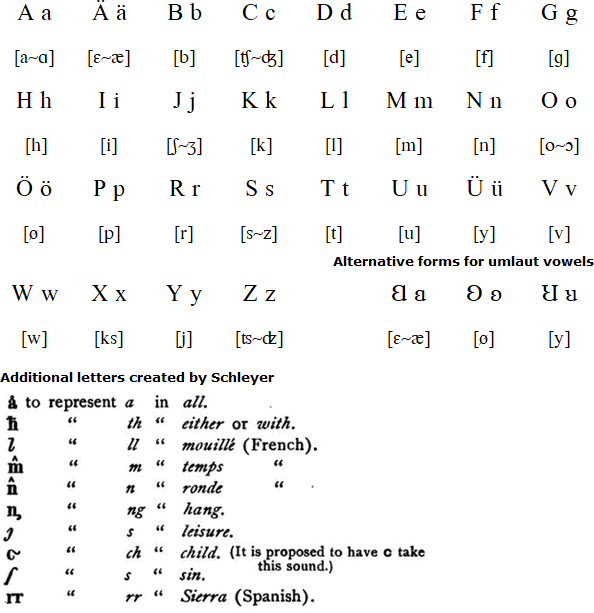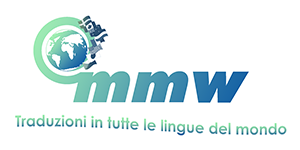Volapük
Volapük ("World Language") was invented in 1879 by Johann Martin
Schleyer, a German priest who lived in Baden. Schleyer
claimed the idea for creating an international language was
suggested to him by God in dream. His aim was to create a language which
was “capable of expressing thought with the greatest clearness
and accuracy” (Sprague, 1888) and was easy for as many people
as possible to learn.
Schleyer based the vocabulary of Volapük on English, German and
Latin and tried to eliminate sounds that would difficult for speakers of
other languages to pronounce. Few of the resulting words are easily
recognisable to English, German or Latin speakers. Schleyer also tried to
reduce words to one syllable, and devised a complex set of grammatical rules
for his language – a Volapük verb can have over 500,000 forms!
At first there was little interest in Volapük in the scientific
and literary communities. Then in 1882 a society to promote the language
was set up in Vienna. In 1884 interest in Volapük spread to Belgium
and the Netherlands. By the late 1880s, there were Volapük societies
springing up all over Europe, North and South America, Russia and parts
of Asia. A number of periodicals in Volapük were published and
conferences were held. The first world congress of Volapük was held
in Germany in 1884, the second in 1887, the third in 1889. A its peak,
Volapük had over 100,000 speakers.
The Volapük movement started to unravel after the third world
congress in 1889 at which Professor Auguste Kerckhoffs, an enthusiastic
French advocate of the language, was elected president of the Volapük
Academy. Schleyer refused to recognise the authority of the Academy and
within a few years the Volapük movement had collapsed.
In 1887 that Dr L. L. Zamenhof published his first work on
Esperanto, which soon became
the international auxiliary language of choice for Volapük enthusiasts
and many others.
Volapük alphabet

Sample texts in Volapük
Valik menas labons leig e lib in dinits e dets. Givons lisäls e konsiens
e mutons dunön okes in flenüg tikäl.
Translation
All human beings are born free and equal in dignity and rights. They
are endowed with reason and conscience and should act towards one another
in a spirit of brotherhood.
(Article 1 of the Universal Declaration of Human Rights)
Lord’s PrayerO Fat obas, kel binol in süls, |
TranslationOur Father, who art in heaven, |
Links
Handbook of Volapük – by Charles E. Sprague (first published in 1888)
http://personal.southern.edu/~caviness/Volapuk/HBoV/
Online lessons in Volapük and links to online Volapük resources
http://personal.southern.edu/~caviness/Volapuk/
Further information about Volapük
http://web.onetel.net.uk/~rmidgley/
http://www.homunculus.com/babel/avolapuk.html
